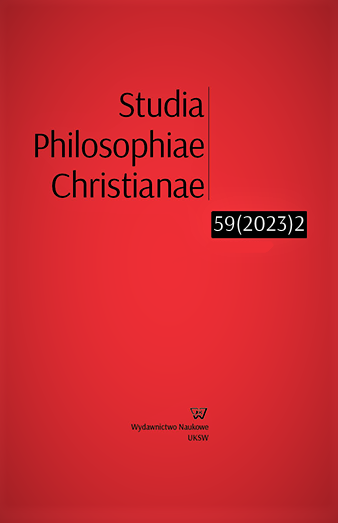Scotus’s Analysis of the Structure of the Will in the Light of 14th-Century Philosophical and Theological Discussions
Scotus’s Analysis of the Structure of the Will in the Light of 14th-Century Philosophical and Theological Discussions
Author(s): Martyna KoszkałoSubject(s): Philosophy of Middle Ages, 13th to 14th Centuries
Published by: Wydawnictwo Naukowe Uniwersytetu Kardynała Stefana Wyszyńskiego w Warszawie
Keywords: free will; medieval philosophy; acts of will; complexity of the will; 14th-century ethics;
Summary/Abstract: This article addresses the issue of the two-level nature of acts of the will, i.e. its ability to voluntarily refer to its own acts. First, we will examine the ancient sources of the concept of the two-level will (Plato and Augustine). Then, we will focus on the views of John Duns Scotus on the types of acts of will, with particular emphasis on the concept of non velle and its application in philosophical and theological issues. Against the backdrop of Scotus’s concept, we will examine the ways in which 14th-century thinkers engaged with his position and developed his account of the two-level acts of will and types of acts of will. Finally, the article discusses a significant change in the function of non velle and the use of this type of volitional act in 14th-century ethics by exploring the views of Buridan and Kilvington.
Journal: Studia Philosophiae Christianae
- Issue Year: 59/2023
- Issue No: 2
- Page Range: 21-51
- Page Count: 31
- Language: English

